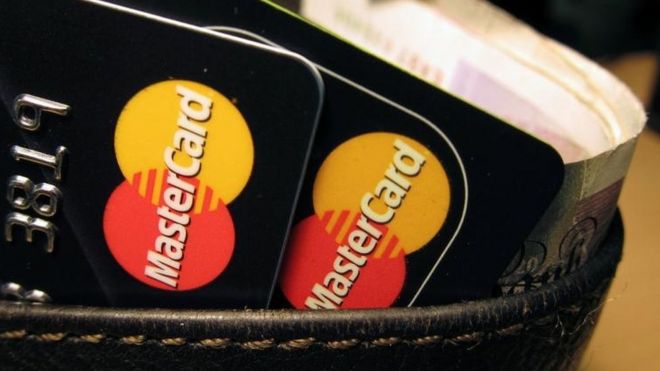The former editor and legal manager of defunct newspaper the News of the World have been found in contempt of Parliament over evidence they gave to a committee of MPs about the phone-hacking scandal.
But Colin Myler and Tom Crone rejected the findings, insisting that they did not mislead the House of Commons Culture, Media and Sport Committee in hearings in 2009 and 2011.
The House of Commons Committee of Privileges recommended that the Commons should "formally admonish" Mr Myler and Mr Crone for giving misleading evidence over claims that hacking at the Sunday tabloid was confined to a single "rogue reporter".

News of the World editor Colin Myler and News International head of legal affairs Tom Crone, when they appeared before the Commons Culture, Media and Sport committee
The committee did not uphold similar allegations against one-time News International (NI) executive chairman Les Hinton - a right-hand man of the firm's boss Rupert Murdoch - and found that NI did not commit contempt as a company.
Mr Myler - who edited the News of the World from 2007 until its closure - said he was "extremely disappointed" at the Privileges Committee's conclusion, which he said was "plainly contradicted" by evidence in its own report. And lawyer Mr Crone said he stood by the evidence he gave
The Privileges Committee launched its investigation in response to complaints from the CMSC that it had been misled by witnesses during its inquiries into the phone-hacking scandal, which led to the closure of the News of the World in 2011.
Its report found that Mr Myler misled the committee by denying that he was aware of hacking and other wrong-doing by employees of the best-selling paper other than royal correspondent Clive Goodman, who was jailed in 2007 for conspiring to eavesdrop on private voicemail messages.
Mr Crone misled the CMSC in relation to the same issue, and in relation to a settlement reached with Professional Footballers' Association chief executive Gordon Taylor, the report found.
However, it found there was not enough evidence to show that Mr Crone sought to mislead MPs about the commissioning of surveillance.
And it found that allegations Mr Hinton sought to mislead the CMSC over payoffs to Mr Goodman, and misled it over the "rogue reporter" question, did not meet the required standards of proof to be upheld.
While the CMSC was "sceptical" about Mr Hinton's memory, there was "no evidence that he misled the committee in relation to his role in the payment of legal fees, or the fact that he authorised the payments to Mr Goodman to settle his Employment Tribunal claim", found the Privileges Committee.
There was "insufficient evidence" of a breach of parliamentary privilege on the part of NI - now News UK - said the committee, which said it did not consider the company to have committed a contempt.
News International's initial claim that Mr Goodman and private investigator Glenn Mulcaire had been acting alone in listening in to the private phone messages of people in the public eye collapsed after the emergence of an email which indicated that others at the newspaper were aware of what was going on.
The company acknowledged liability in a number of cases in 2011 and paid out significant sums in compensation.
Responding to the Privileges Committee report, Mr Myler said: "I have made clear throughout the respect I hold for the Parliamentary process. I maintain that I did not mislead the Culture, Media and Sport Committee.
"Had the appropriate standard of proof been properly applied, the Privileges Committee could not have reached a finding of contempt against me, given that the report identifies evidence which plainly contradicts their conclusions.
"It is profoundly disappointing that the Privileges Committee has chosen to act in a manner which serves to discredit parliamentary procedures rather than enhance the very authority and respect which they profess to command.
"For decades, Parliament has failed to follow clear, detailed and carefully considered advice that fundamental change is needed to bring acceptability to the antiquated contempt procedures upon which Parliament still relies."
Mr Crone said: "I do not accept the findings made against me in the Committee of Privileges Report.
"I stand by the evidence I gave on both of the issues they have highlighted.
"In particular, I accepted clearly and unequivocally at the outset of my evidence to the CMSC that the problem of phone-hacking by News of the World reporters went beyond the Clive Goodman/Glenn Mulcaire situation. That is a matter of record which is beyond challenge.
"It is regrettable that the CMSC report which is the subject of the Privileges Committee findings chose to ignore completely the above evidence I gave."
Mr Hinton said that his exoneration was "too little and too late", and said he had been the victim of a "free-for-all character assassination" when the CMSC's allegations were first made in 2012.
"After more than four years, the Committee of Privileges has thrown out the charges that I was guilty of contempt of Parliament and a cover-up of phone hacking," said the former News International executive.
"Its findings are too little and too late, coming so long after I was vilified by MPs in a 125-page report, a televised press conference and a 90-minute House of Commons debate.
"The CMSC reached its false findings in 2012. It posed as a quasi-judicial body with the right to impose criminal punishments, yet followed none of the usual rules of law and fair process. It carried out an amateur investigation, missed vital evidence, and some members displayed no pretence at impartiality. Even before its report was released, the committee's most vocal member, Tom Watson MP, published a book accusing me of misleading the committee.
"Today's report by the Committee of Privileges speaks proudly of its concern to 'meet modern standards of fairness' in deciding whether the Culture Committee had been 'correct' in its findings.
"Parliament has a back-to-front idea of justice and fairness when it claims these standards, after allowing the sham trial and free-for-all character assassination I experienced in 2012."
Source: http://www.dailymail.co.uk/wires/pa/article-3788814/Hacking-scandal-tabloids-editor-lawyer-admonished-claims-MPs.html#ixzz4KEADQbGM



















